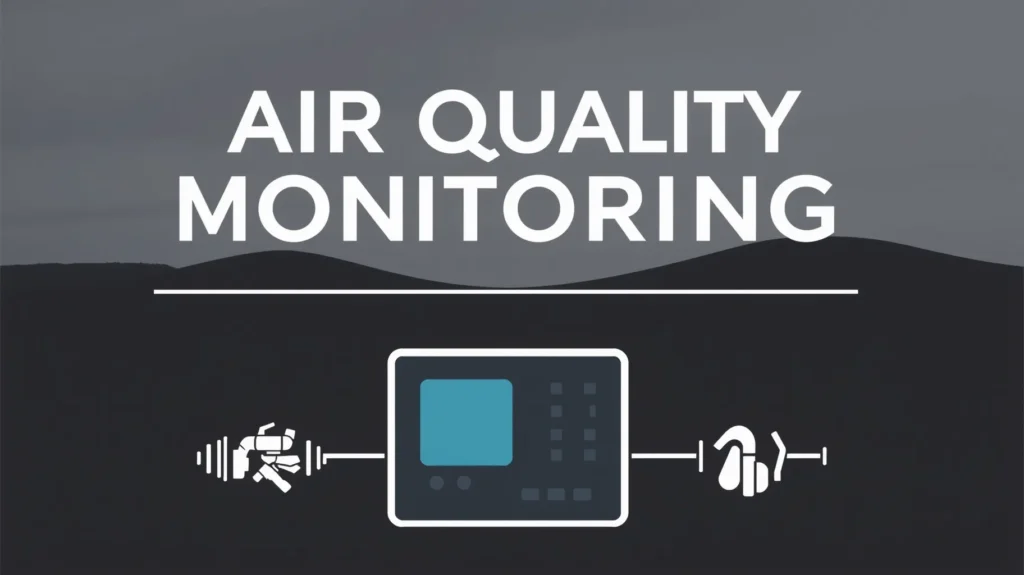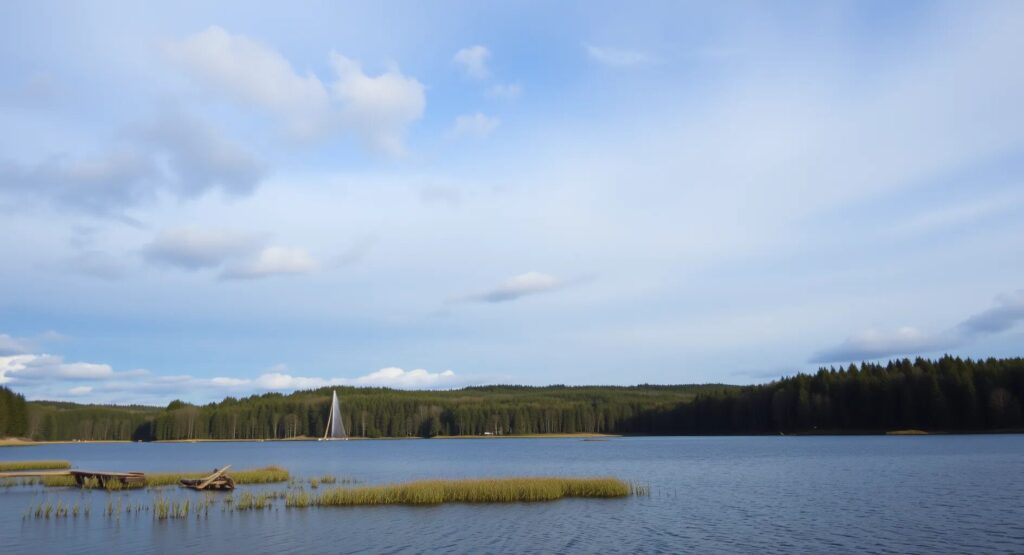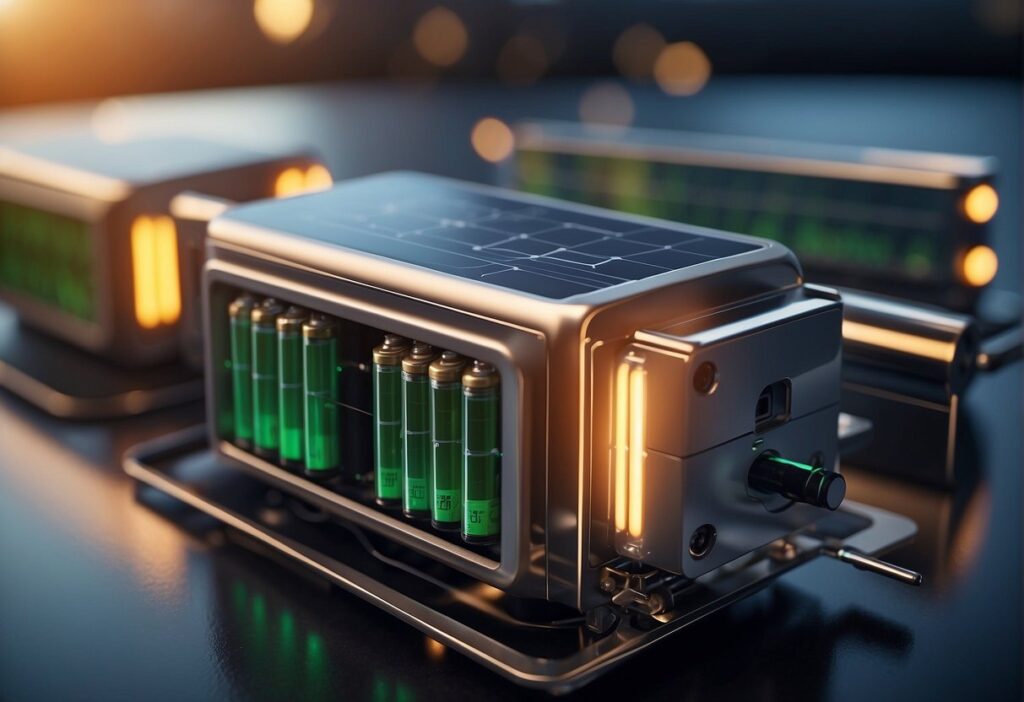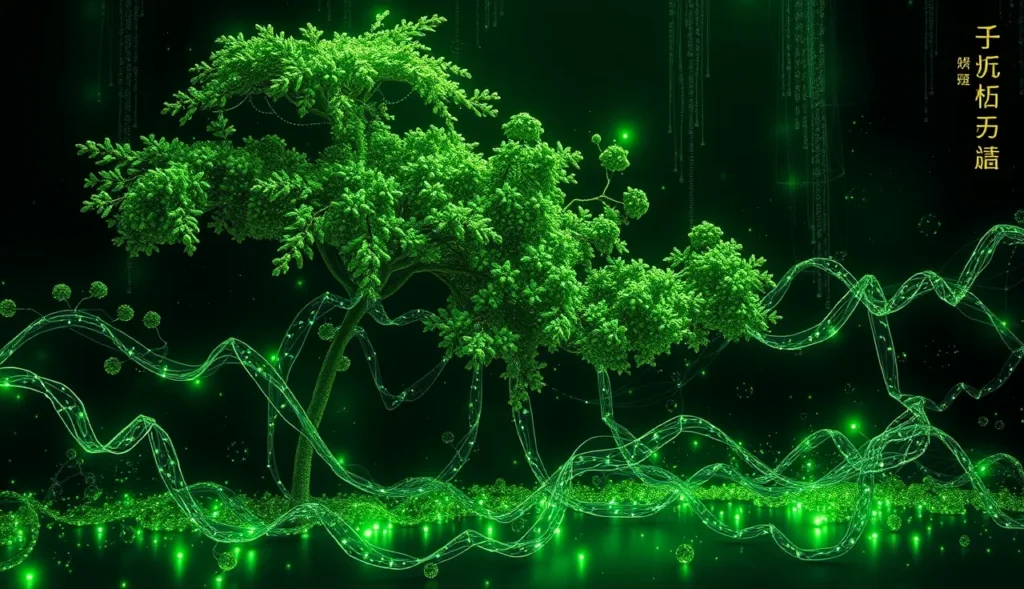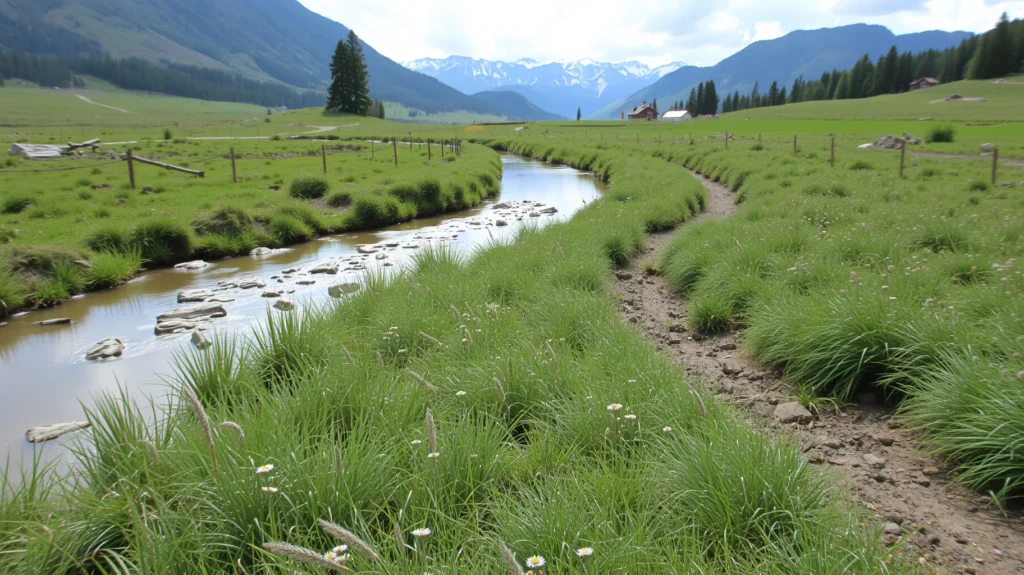
Water is often called the lifeblood of our planet. Yet, despite its critical importance, water scarcity is a growing concern globally. From sprawling urban areas to farmlands, the demand for water is increasing while supply diminishes. In this digital age, we’re seeing an unexpected hero emerge: Artificial Intelligence (AI). With technological advances, AI is now playing a vital role in saving our most precious resource. Let’s explore how AI is reshaping water conservation and creating a ripple effect across industries.
The Growing Threat of Water Scarcity
Water scarcity is no longer a distant worry; it’s happening now. The United Nations reports that nearly 2.3 billion people live in water-stressed areas. Climate change, population growth, and mismanagement are exacerbating the issue, threatening ecosystems, agriculture, and even human health. With such pressing challenges, innovative solutions are crucial, and AI is offering new ways to optimize and manage water resources more effectively.
How AI Can Solve Water Management Issues
AI’s ability to analyze massive amounts of data in real-time makes it uniquely suited for tackling the complex problem of water management. By employing machine learning algorithms, AI systems can monitor water usage, predict future demand, and identify areas where waste can be minimized. Not only does this reduce unnecessary water consumption, but it also increases efficiency in systems such as irrigation and urban water supplies.
Smart Water Grids: A Modern Solution
One of the most groundbreaking applications of AI in water conservation is the development of smart water grids. Traditional water systems are often inefficient, losing large amounts of water through leaks and poor infrastructure. AI, combined with IoT sensors, helps detect these inefficiencies in real time. These smart grids can quickly identify where water is being wasted, allowing for rapid fixes and more efficient resource distribution.
AI-Driven Irrigation Systems
In agriculture, AI-powered irrigation is revolutionizing how water is used on farms. Agriculture consumes nearly 70% of the world’s freshwater, and traditional irrigation methods often lead to overwatering. By using AI, farmers can now tailor their watering schedules based on weather forecasts, soil conditions, and plant needs. This not only conserves water but also improves crop yields.
Predictive Analytics for Water Conservation
Predictive analytics, powered by AI, allows cities, companies, and individuals to forecast their water needs with unprecedented accuracy. By analyzing past consumption patterns and considering factors like climate conditions and seasonal changes, AI systems can predict demand spikes or shortages. This helps in planning ahead, avoiding waste, and ensuring that water is allocated where it’s most needed.
Tackling Water Leaks with AI
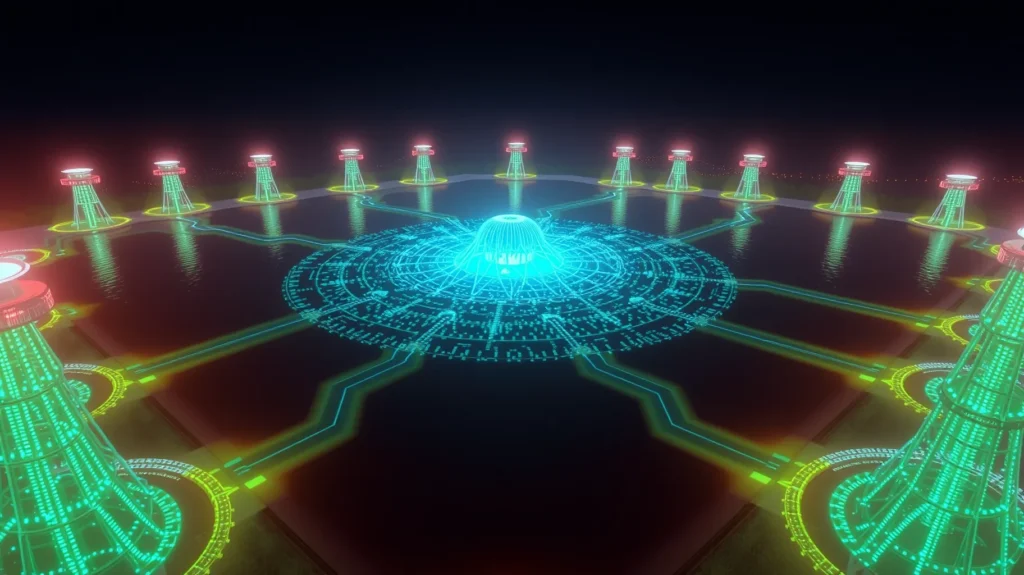
Leaks are one of the biggest sources of water waste in both urban and rural settings. AI technologies are now helping to detect these leaks faster and more efficiently. Smart sensors installed in pipelines, coupled with AI algorithms, can pinpoint even the smallest leaks, which often go unnoticed in traditional systems. This proactive approach reduces water loss and prevents costly damage.
AI in Water Treatment Processes
AI isn’t just about managing water distribution; it’s also about improving the quality of water we consume. In water treatment plants, AI can optimize purification processes by predicting the required chemical levels or filtration needs. These systems ensure that we use the right amount of resources while delivering safe, clean water to homes and businesses.
Real-Time Water Monitoring with AI
One of the most significant advancements in water conservation is real-time monitoring. AI can track water levels, usage, and quality in real time, providing up-to-the-minute data that allows for immediate action. Whether it’s monitoring reservoirs or detecting changes in water quality due to pollution, AI ensures that we have a more responsive and efficient system in place.
The Role of AI in Flood Management
While drought is a significant concern, floods also present a challenge to water conservation efforts. AI-based flood prediction models can now anticipate flood risks based on weather data, historical trends, and geographic information. Early warnings allow for better preparation and response, mitigating the damage and reducing the strain on local water resources post-flood.
AI in Desalination: Transforming Saltwater into Freshwater
Desalination is becoming an increasingly viable option to address water shortages, and AI is making it even more efficient. Desalination processes are typically energy-intensive, but with AI, these processes can be optimized, reducing both the energy and costs associated with converting saltwater into usable freshwater.
AI-Powered Drones for Environmental Monitoring
AI-powered drones are now taking to the skies, helping monitor water bodies such as lakes, rivers, and reservoirs. These drones can collect data on water levels, quality, and usage, providing insights into how water systems are functioning. By offering a bird’s-eye view, AI drones are helping to maintain and protect essential water sources.
AI in Pollution Detection and Prevention

One often-overlooked aspect of water conservation is pollution control, and AI is now playing a pivotal role here as well. Through the use of AI-powered sensors, governments and environmental agencies can monitor water quality and detect pollutants much faster than manual testing methods. AI systems can analyze complex datasets to identify contamination patterns and sources, providing early warnings before pollutants spread and cause extensive damage. These systems can even recommend the best course of action to prevent further contamination, protecting ecosystems and human health.
Fighting Ocean Pollution with AI
Marine pollution has become a global crisis, with oceans filled with plastics and other harmful waste. AI, however, is lending a hand in cleaning up our waters. Machine learning models are being used to track waste patterns, identify pollution hotspots, and predict where ocean currents will carry debris. Some initiatives are using AI-driven robots to collect ocean waste, while others are working on predictive models to better understand the movement of pollutants, allowing more efficient cleanup operations.
Global Impact of AI in Water Conservation
The influence of AI in water conservation is not limited to one country or region. From the drought-prone lands of Africa to densely populated cities in Asia, AI-driven technologies are having a profound global impact. In developing countries, AI offers new hope by providing cost-effective solutions to water scarcity. For instance, in regions where water monitoring infrastructure is weak, AI systems powered by satellite data can be used to track water usage and prevent waste. These solutions are scalable and adaptable, helping governments make informed decisions about water conservation on a broader scale.
AI and Sustainable Water Use in Urban Areas
As urban populations grow, the pressure on local water supplies intensifies. AI is helping cities around the world develop smart water management systems to address this issue. By incorporating AI algorithms into urban planning, water utilities can better forecast demand, optimize distribution, and manage resources more sustainably. Some cities are even using AI to track residents’ water usage habits and provide personalized recommendations on how to reduce consumption. This kind of data-driven approach is key to creating sustainable urban water systems that can meet future demand without depleting resources.
AI’s Role in the Circular Water Economy
The concept of a circular water economy revolves around reusing and recycling water to minimize waste and maximize efficiency. AI is playing a crucial role in advancing this model. By analyzing wastewater and identifying potential contaminants, AI can help determine the best ways to treat and recycle water for different uses. From agricultural irrigation to industrial cooling, AI systems are making it easier to incorporate recycled water into everyday processes, significantly reducing overall demand for fresh water.
AI in Tackling Groundwater Depletion
Groundwater is an essential source of fresh water for many communities, but it’s being depleted at an alarming rate. AI is stepping in to help manage this valuable resource by predicting groundwater levels and usage trends. By combining satellite imagery with AI-powered analysis, scientists can track groundwater reserves and predict how they will change over time. This allows for better management of groundwater extraction, helping to ensure that future generations have access to this critical resource.
AI-Powered Conservation Efforts in the Corporate Sector
Water conservation is not just a public sector concern; corporations are also taking note. Companies in water-intensive industries such as manufacturing, energy, and agriculture are turning to AI to reduce their water footprint. AI systems are being integrated into manufacturing processes to monitor water usage and identify ways to reduce waste. Some companies are even using AI to develop new water-saving technologies, from more efficient cooling systems to smarter production lines.
Ethical Considerations and Challenges of AI in Water Conservation
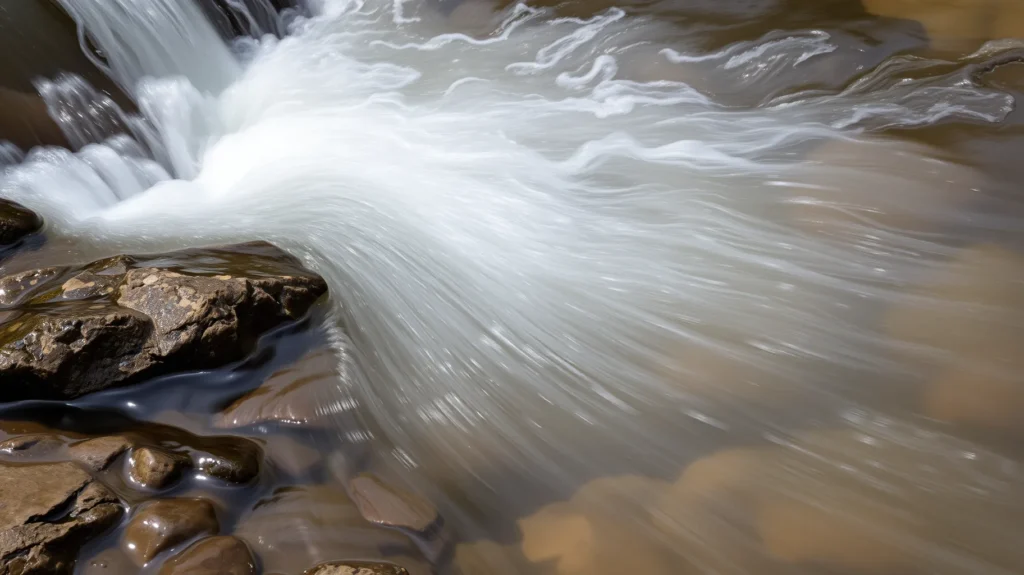
While AI offers numerous benefits for water conservation, it’s not without its challenges. One key issue is data privacy. As AI systems collect and analyze massive amounts of data from individuals, farms, and businesses, there’s a growing concern over who has access to this information. Ensuring that data is used responsibly and ethically is essential for gaining public trust. Moreover, there’s the challenge of ensuring that AI-driven water conservation solutions are accessible to all, not just wealthy countries or corporations. It’s crucial that these technologies are designed to benefit both developed and developing regions equally.
The Future of AI in Water Conservation
Looking ahead, the potential for AI in water conservation is vast. As AI technology continues to evolve, we can expect more advanced solutions that will help address water scarcity, pollution, and management even more efficiently. Quantum computing, for instance, could take AI to new heights, allowing for even faster and more accurate predictions in water-related challenges. Moreover, with advancements in AI-driven automation, we could see fully autonomous systems that manage entire water grids, from treatment to distribution, with minimal human intervention.
Collaborations Between AI and Environmentalists
For AI to be truly effective in water conservation, there needs to be strong collaboration between tech companies, environmentalists, and governments. Many tech companies are already working closely with environmental agencies to develop AI tools tailored to specific water conservation challenges. However, continued collaboration and open data sharing will be key to ensuring that these innovations reach their full potential. When paired with the expertise of environmental scientists and local governments, AI can lead to more sustainable water practices on a global scale.
AI and Public Awareness
While AI is making waves in water conservation, it’s equally important to raise public awareness about these technologies and their benefits. Educating individuals and businesses about how AI can help them conserve water is essential for widespread adoption. Whether through public campaigns or educational programs, the conversation around AI and water conservation needs to include everyday people, empowering them to make a difference in their own water usage.
AI’s Role in a Water-Secure Future
As we continue to face the growing challenge of water scarcity, AI stands out as a game-changer in our efforts to protect and conserve this precious resource. Its ability to optimize water management, prevent pollution, and predict future trends is helping us build a more water-secure future. While AI alone can’t solve all our water problems, it’s clear that technological advances are giving us the tools we need to tackle these issues head-on. As AI becomes even more integrated into our water systems, we can look forward to a future where water is used more wisely, conserved more effectively, and preserved for generations to come.
With the blend of cutting-edge AI technologies and collaborative efforts across sectors, water conservation is entering an exciting new era. By embracing these advances, we can safeguard our most precious resource and create a more sustainable world for all.
FAQs on AI in Water Conservation
What role does AI play in water conservation?
AI plays a pivotal role in water conservation by optimizing water usage, detecting leaks, forecasting water demand, and improving the overall efficiency of water systems. Through data analysis, machine learning, and predictive algorithms, AI helps reduce waste, increase resource efficiency, and ensure sustainable management of water resources.
How does AI help in detecting water leaks?
AI-powered sensors and IoT devices are used to monitor water systems in real-time. Machine learning algorithms analyze the data from these sensors to detect irregularities in water flow, pressure, or volume, which can indicate leaks. By pinpointing leaks quickly, AI helps reduce water waste and prevents potential damage to infrastructure.
Can AI be used to improve agricultural water use?
Yes, AI has a significant impact on agriculture through smart irrigation systems. These systems use AI to analyze factors like soil moisture, weather forecasts, and crop needs to optimize watering schedules. This reduces water waste and improves crop yield by ensuring plants get the right amount of water at the right time.
What are smart water grids, and how do they work with AI?
Smart water grids are modern water management systems that use AI and IoT technologies to monitor water distribution, usage, and quality. AI helps in real-time analysis and decision-making, optimizing water flow, detecting inefficiencies, and adjusting supply based on demand, ensuring minimal waste and energy use.
How does AI contribute to water treatment and purification?
In water treatment facilities, AI can analyze data on water quality, predicting the required chemical levels and filtration needs. AI algorithms optimize the treatment process by adjusting purification systems in real-time, ensuring water is clean and safe without overusing resources.
How is AI used to predict water demand?
AI uses historical data, weather patterns, and consumption trends to forecast future water demand accurately. This predictive capability allows water utilities and municipalities to plan more effectively, ensuring that supply meets demand, especially during peak periods or in areas prone to drought.
Can AI help in managing water during extreme weather events?
Yes, AI models are increasingly being used to predict and manage water-related issues during extreme weather events like floods or droughts. AI can analyze meteorological data and historical flood patterns to predict the likelihood of floods and help authorities take preventive measures. Similarly, it can model drought conditions to optimize water use during shortages.
How does AI improve groundwater management?
AI technologies can track and model groundwater levels using satellite data and ground sensors. By predicting depletion patterns and monitoring extraction rates, AI helps manage groundwater sustainably, preventing overuse and ensuring long-term availability.
Is AI being used to clean up polluted water bodies?
Yes, AI is being used to identify sources of pollution and predict pollution spread in water bodies. AI-powered drones and robots are being deployed to monitor water quality, track waste in oceans, and even perform cleanup tasks by collecting floating debris like plastics.
What industries are benefiting from AI in water conservation?
Industries that rely heavily on water, such as agriculture, manufacturing, and energy, are benefiting the most from AI in water conservation. These industries use AI to optimize water use, reduce waste, and improve efficiency in processes like irrigation, cooling, and cleaning.
How does AI contribute to a circular water economy?
AI helps support the circular water economy by enabling efficient water reuse and recycling. Through the analysis of wastewater and monitoring treatment processes, AI can identify how to best treat and repurpose water for agricultural, industrial, or urban use, reducing the need for fresh water.
Is AI accessible to developing regions for water conservation?
While the initial costs of AI technology can be high, advancements are making it more accessible to developing regions. Satellite data combined with low-cost sensors and cloud-based AI platforms can provide effective water management solutions for areas that lack advanced infrastructure.
What are the main challenges in using AI for water conservation?
Some of the main challenges include data privacy concerns, high implementation costs, and the need for strong infrastructure to support AI systems. Additionally, ensuring equal access to AI technology, especially in developing regions, is crucial for making these solutions globally effective.
Can AI reduce water consumption in households?
Yes, AI-powered smart home devices can monitor household water usage and provide recommendations to reduce consumption. These systems can also automate water use in appliances like dishwashers and sprinklers, ensuring more efficient water use in daily activities.
How do governments use AI to manage national water resources?
Governments are increasingly adopting AI to monitor and manage national water resources. AI systems analyze real-time data from rivers, lakes, reservoirs, and urban water systems to ensure efficient distribution, detect pollution, and forecast future needs, helping with policy decisions and long-term planning.
Resources
Websites & Organizations
- World Resources Institute (WRI)
WRI provides extensive research on global water scarcity and how innovative technologies, including AI, can be leveraged to address these challenges.
Website: www.wri.org - The United Nations – Water
The UN’s water-related goals and initiatives focus on sustainable development and water conservation, including the use of emerging technologies like AI.
Website: www.unwater.org - International Water Association (IWA)
A global network that works on innovative and sustainable water solutions, often featuring technological approaches such as AI in water management.
Website: www.iwa-network.org - Xylem
A company at the forefront of applying AI-driven water solutions to improve water quality, reduce waste, and enhance water systems globally.
Website: www.xylem.com - Water.org
A non-profit organization focused on improving access to safe water worldwide, advocating for the use of technology and smart solutions in water conservation.
Website: www.water.org
Articles & Reports
- “Artificial Intelligence in Water Management” by Nature Sustainability
An in-depth academic paper discussing how AI technologies are reshaping water conservation practices across the globe.
Available via Nature. - “The Role of AI in Tackling Global Water Challenges” by IBM
A report by IBM on how AI and IoT are driving efficiency in water management systems.
Available at IBM Research. - “Smart Water Management Using AI” by Forbes
A comprehensive overview of how AI is being applied in smart water management and the benefits of this approach.
Find it on Forbes.
Tools & Technologies
- Google’s Earth Engine
Google Earth Engine offers tools and datasets that use AI to analyze water resources globally. It’s an invaluable resource for water conservation projects.
Website: earthengine.google.com - H2O.ai
A leading open-source AI platform offering tools for water utility companies to predict water demand, improve system efficiency, and detect leaks.
Website: www.h2o.ai - Watershed Management Optimization Support Tool (WMOST)
Developed by the U.S. Environmental Protection Agency (EPA), this tool helps water resource managers simulate different scenarios to optimize water use.
Website: EPA WMOST
Conferences & Webinars
- World Water Week
An annual event hosted by the Stockholm International Water Institute, focusing on global water challenges and the role of AI and technology in solving them.
Website: worldwaterweek.org
